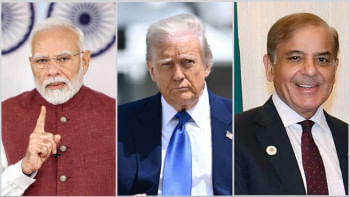Watching a K-drama for the first time

The incessant chatter around me about Korean dramas made me curious as to what exactly makes these dramas so special, so I decided to actually watch one.
While searching for a drama to watch, the first thing I realised was that the episodes of almost every drama were at least an hour long each and they never went on for many seasons, hence saving the sanity of both viewers and writers.
"It's Okay, That's Love" caught my interest since it was the story of a novelist and a psychiatrist falling in love. It starts off with an indoor pool scene that makes it utterly obvious that it was filmed on a set. The show quickly takes a violent turn with a fight scene accompanied by what I can only describe as slow romantic music. This inappropriate use of soft-hearted music during serious scenes baffled me at first but I later realised that the point was to not make the drama as dark as it had the potential to be.
It also quickly became apparent that characters in K-dramas are slightly more hostile than what we're used to in Hollywood. Shouting at each other when even mildly irritated is a norm and not considered offensive. Hitting or shoving people, breaking things, and causing havoc seemed completely natural.
The drama also seemed to have taken cue from Hindi serials and used overly dramatic slow-motion scenes of people turning around or falling over. There was no way I could take the slow-motion scenes seriously but it did add a comedic factor to the drama.
Humour is subjective but I can safely say that the humour in K-dramas is very different from what we see in American TV shows. Eccentric behaviour is the key to comedy in this drama. There were characters whose sole purpose was to be foolish and care-free. It was more about laughing at the characters rather than laughing at any jokes they cracked.
The romance is surely the highlight of this drama, as with most K-dramas. Similar to a lot of English rom-coms, the story is cheesy. However, it's the kind of cheesy you'll actually enjoy and then curse yourself for it. This drama has a unique meet cute between the male and female protagonist on a talk show which I shamelessly enjoyed. Even though romantic scenes were abundant, they seemed, to me, a bit more conservative than the scenes in any American TV show.
The drama sheds light on a lot of mental disorders like schizophrenia, depression, and Tourette syndrome since some of the characters are psychiatrists. It was unusual how such serious issues were introduced in a setting that doesn't really accommodate them.
The witty dialogue, tacky romance, and eccentric characters did not convert me into a K-drama fan but I'm glad I gave it a shot and can proudly say it wasn't a complete waste of my time.

 For all latest news, follow The Daily Star's Google News channel.
For all latest news, follow The Daily Star's Google News channel. 



Comments